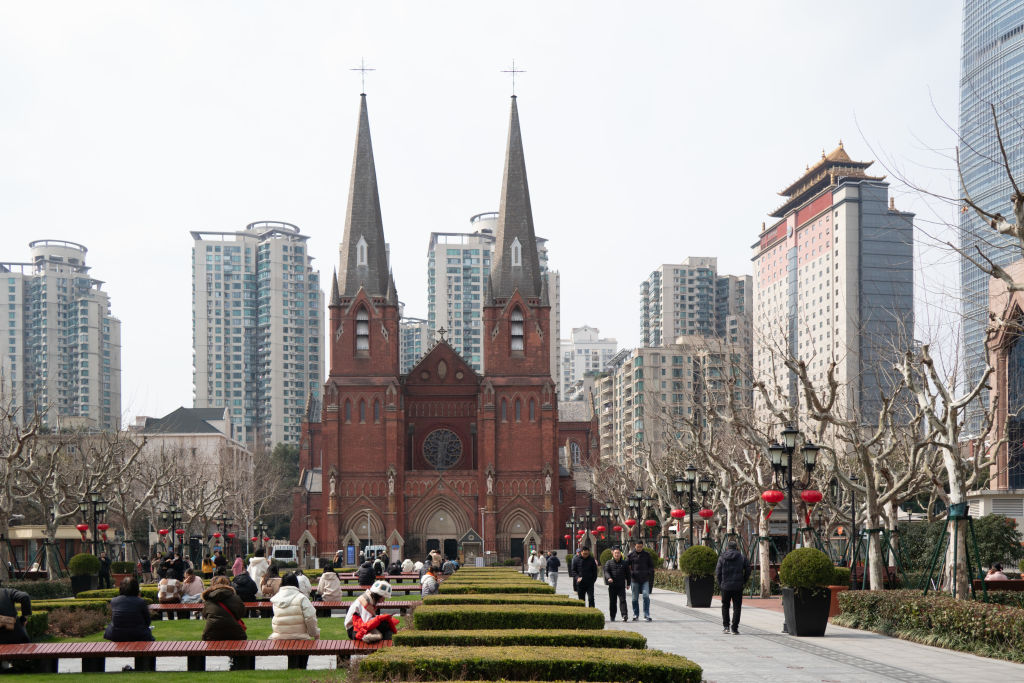For close to eight decades, the Vatican has maintained formal diplomatic relations with Taiwan. Despite according de-facto recognition to the People’s Republic of China based on its pre-existing ties, the Vatican has persistently assured Taiwan of its support. However, in a bid to make headway in its relationship with PRC, Vatican has also asserted that its recognition of Taiwan is not antithetical to this relationship with China and that it does not consider Taiwan as an independent political actor.
Yet recent trends of diplomatic engagement between the Vatican and Beijing hint at the possibility of the Holy See switching its diplomatic recognition from Taiwan.
In May, the Holy See hosted the head of China’s Bishops conference commemorating a landmark 1924 meeting in Shanghai . The diplomatic relationship with China has historically been fraught, the conference was significant because a mainland bishop Joseph Shen Bin was allowed by the PRC to publicly participate in a Vatican event. The Holy See also acknowledged misjudgements of the past – ties were severed seven decades ago – and insisted that the Catholic church did not pose a threat to China’s sovereignty.
This event in a microcosm was a reflection of the broader trend of normalisation between the Vatican and China. Pope Francis and the Vatican Secretary of State Pietro Parolin have made choices independent of the aspirations of the Chinese clergy and an informal consultative committee of Taiwanese Bishops guiding the reconciliation with China. Parolin has said the Vatican wanted to establish a “stable presence in China” and described recognition of the Council of Chinese Bishops – linked to the CCP – as a “work in progress”.

The Vatican’s position holds special significance given that it is the only country in Europe to recognise Taiwan and acts as its sole diplomatic outpost in Europe. Beyond Europe, the Vatican holds considerable global influence as the head of the Catholic church and significant soft power. Critically, all 12 of the countries that presently hold diplomatic relations with Taiwan feature significant Christian and Catholic populations, which hold reverence for the Vatican.
In 2018, the Vatican and China agreed upon a landmark agreement for the joint appointment of Roman Catholic Bishops in China. This reconciled a deep schism that existed between state-recognised church in China and an underground church that showed allegiance to Vatican. This agreement was a watershed moment with both sides making concessions: China relinquishing its exclusive right to name bishops, while receiving greater control over underground churches, and the Pope agreeing to jointly make decisions on episcopal appointments while gaining a veto over candidates.
This agreement did not mean the establishment of formal diplomatic ties between China and the Vatican but was described by the Vatican as “the fruit of a gradual and reciprocal repproachment”. In the years since, and despite Chinese non-compliance and violations, both parties demonstrated tolerance and resolve in taking a long view of the relationship, extending the agreement twice in 2020 and 2022.
China’s interests in fostering a closer relationship with Vatican lie in the potential to influence a switch in its diplomatic recognition away from Taiwan.
As the momentum in the relationship builds, there are compelling reasons for both China and the Holy See to strengthen their relationship. The Vatican is concerned with securing permissible conditions with the aim of disseminating moral and spiritual education within Catholic communities. China, with an estimated 12 million Catholics, forms a substantial support base and a critical demographic. Moreover, fostering a durable relationship with China’s government can allow the Church to protect its institutional interests and promote the material and spiritual wellbeing of the faithful in the country.
In turn, China seeks to benefit from the considerable influence the Vatican wields in helping overcome the prevailing trust deficit that pervades China-Europe relations. China’s belligerent stance in South China Sea, poor human rights record in Xinjiang, and disruptions of the Covid era have taken a toll.
A closer relationship with the Vatican can also be useful for China in mediating its strained relationship with Southeast Asian countries with a Catholic majority, such as the Philippines amid the ongoing maritime row in West Philippine Sea.
But most notably, China’s interests in fostering a closer relationship with Vatican lie in the potential to influence a switch in its diplomatic recognition away from Taiwan, which would cement international consensus and legitimacy to Beijing’s stance. With Nauru the latest nation to switch its recognition to People’s Republic of China in January this year, Taiwan has now lost ten diplomatic partners in less than a decade.
The Vatican’s influence in Catholic countries makes it a diplomatic prize. Although speculation about a potential shift in diplomatic relations with Taiwan’s has bubbled away for years, the prospect of a change would carry significant consequences. It is exactly the sort of long-term goal China is working towards.

